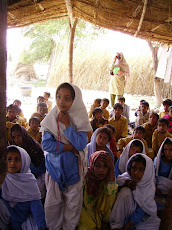“You cannot hope to build a better world without improving the individuals. To that end each of us must work for his own improvement, and at the same time share a general responsibility for all humanity, our particular duty being to aid those to whom we think we can be most useful.” (Marie Curie, Polish-born French chemist, 1867-1934)
In this speech, I will first introduce Soroptimist International (SI) and tell you a little about what we do, then, I will present our approach as it relates to the discussions we are having here, and finally, I will give a few examples of how we implement our approach in the real world. So let us begin!
Soroptimist International is a worldwide service organisation of women, for women. SI is committed to a world where women and girls together achieve their individual and collective potential, realise aspirations and have an equal voice in creating sustainable communities worldwide. Our mission is to inspire action and create opportunities to transform the lives of women and girls through a global network of members and international partnerships.
From the founding of the first Soroptimist club in 1921 through to the present day where over 3000 clubs are flourishing throughout the world, Soroptimists have continued to strive to achieve the best for women in every sphere of their lives. SI is now approaching 90,000 members in 125 countries/territories. SI’s structure embraces partnerships between the Global North and the Global South, whereby we learn from one another and support one another as we empower women and girls.
I will now present three aspects of SI’s work as it relates to this panel:
First, Potential
SI believes that every woman and girl deserves an equal chance in life. Our work, primarily through programming, focuses on identifying women and girls who are unable to achieve their full potential due to social, economic, political, and contextual factors.
Second, RIGHTS:
SI’s advocacy efforts are unique in that we link community based experience working with individual women and girls to international policy debate. Not only can we help to realise the rights of individual women and girls, but we also work to mould policies to ensure that the collective rights of women and girls are respected, protected, and fulfilled at international level.
Responsibilities: In order for gender stereotypes to be broken we work within communities, including working with men, boys, and male community leaders, to create a more enabling and gender equitable environment. We also work with individual women and girls to ensure that they are empowered to take on new roles, in other words, that they have the skills and confidence to make gender equality work. In this way, we can support women and girls as they strive towards realising their potentials and their rights through a holistic programme of development. For example, SI and Women for Women International “Project Independence” aimed to help individual women to learn new skills to become self-sufficient, become independent, and ultimately to realize her voice, her worth and her strength. Now, 25% of the Rwandan women who participated in the project are elected officials.
Let me share more examples:
Lois lives in Sierra Leone Sierra Leone Sierra Leone
Ludmilla lives in Moldova
A young Ethiopian woman was found in a dark hut where she had lain on a goat skin bed for many years suffering from an obstetric fistula. She had bed sores down to the bone. The young woman had lain still for so long hoping that she would stop leaking that she lost the use of her legs and could not walk. She was so psychologically depressed she did not speak. This young Ethiopian woman was brought to the Hamlin Fistula Hospital
These hopeful and happy endings address the root causes of gendered barriers to equality – in these cases, poverty, economic vulnerability, and health. These women and girls faced a lack of skills, confidence, and opportunities which made it impossible to reach their full potential and realise their rights. Our contribution – which can work for many different organisations in many different contexts - enabled them to break the cycle and lead productive lives.












No comments:
Post a Comment